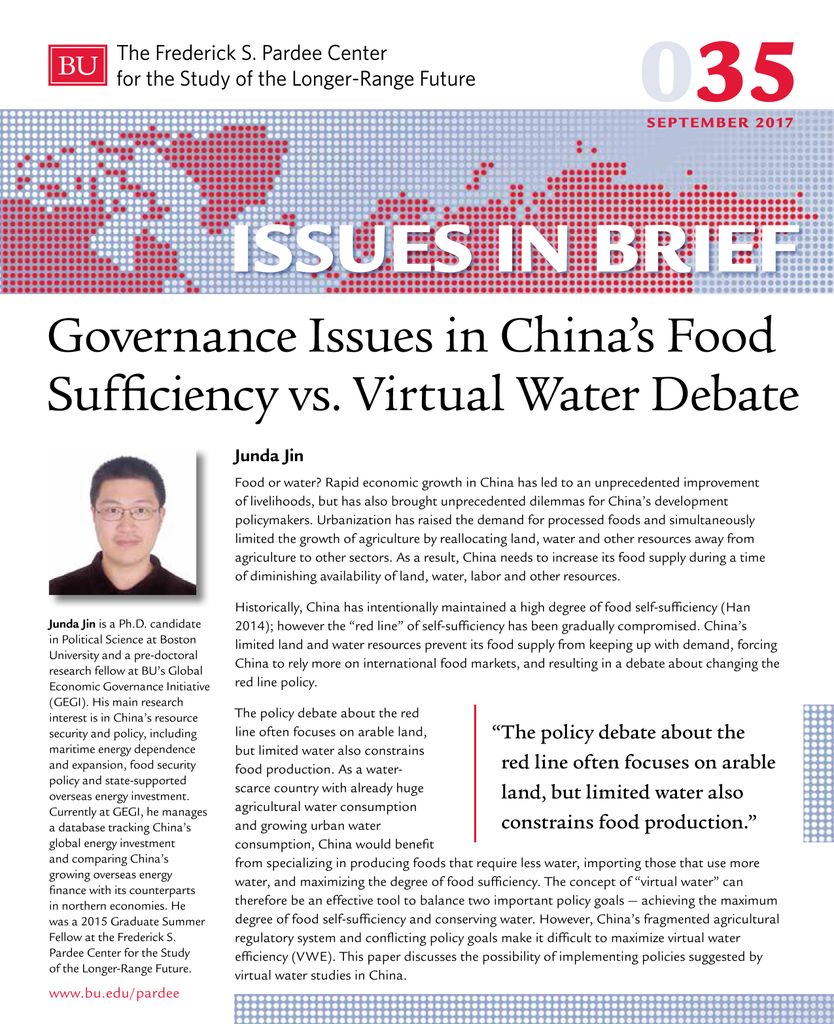New Paper: “Governance Issues in China’s Food Sufficiency vs. Virtual Water Debate”
 The Frederick S. Pardee Center for the Study of the Longer-Range Future has published a new paper in its Issues in Brief series. The paper, titled “Governance Issues in China’s Food Sufficiency vs. Virtual Water Debate,” was written by Junda Jin, a 2015 Pardee Center Graduate Summer Fellow and a Ph.D. candidate in Political Science at Boston University.
The Frederick S. Pardee Center for the Study of the Longer-Range Future has published a new paper in its Issues in Brief series. The paper, titled “Governance Issues in China’s Food Sufficiency vs. Virtual Water Debate,” was written by Junda Jin, a 2015 Pardee Center Graduate Summer Fellow and a Ph.D. candidate in Political Science at Boston University.
Rapid economic growth and urbanization in China have led to challenges in maintaining food sufficiency, as land, water, and other resources are reallocated away from agriculture in an already water-scarce country. Water is becoming a particularly problematic constraint on food production, as China’s renewable water resource per capita is only 28 percent of the global average and 60 percent of arable land in China is located in water scarce areas. In this Issues in Brief, Junda Jin explores the feasibility of implementing “virtual water” policies in China, specializing in producing foods that require less water and importing those that use more. He discusses the advantages and challenges of pursuing such a strategy to optimize food production, and concludes that virtual water can be a solution to both water scarcity and the threat of food insecurity in China, but that effective implementation would require a less fragmented governance structure and more coordinated regulation.
Click here to download the PDF. Hard copies are free and can be requested by sending an email to pardee@bu.edu.